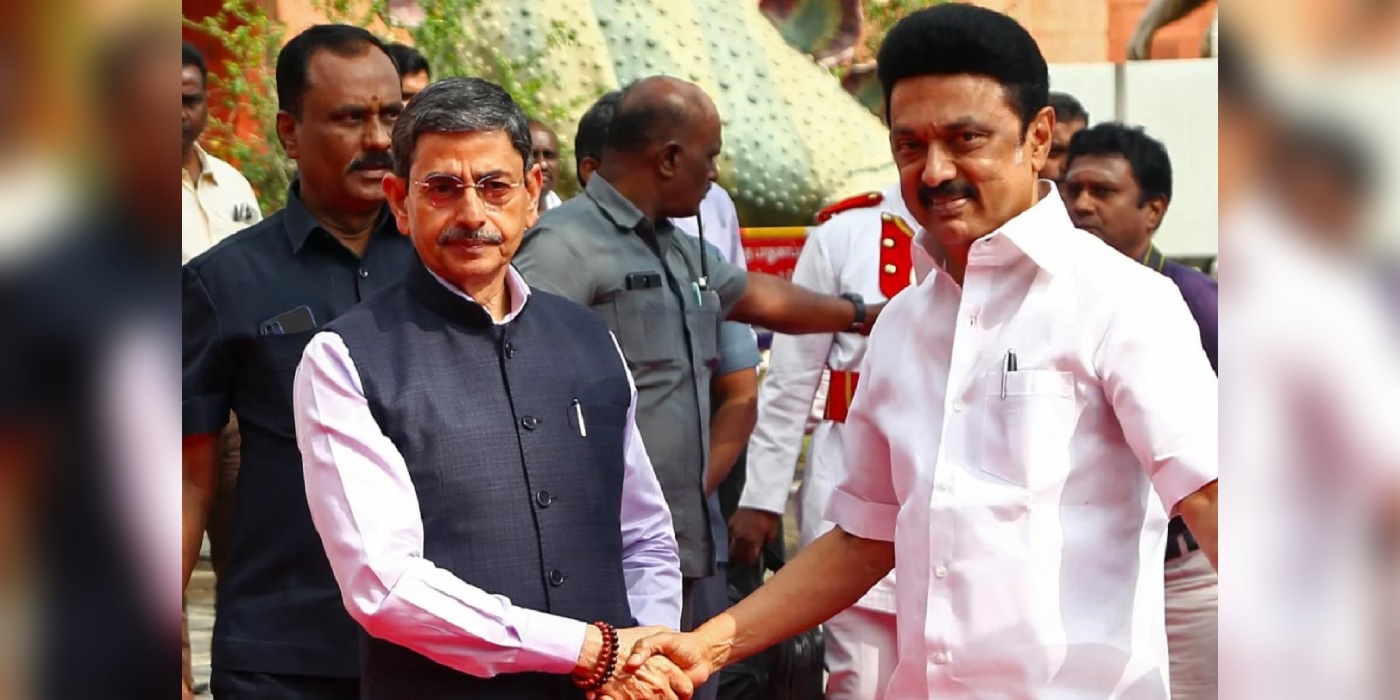Governors’ skirmishes with 'opposition' state government are not new; they have dogged Indian democracy, blurring powers, procedures and politics, over the last few decades

The State contended that the Governor is "engaging in politically motivated conduct"
In 1946, Sir Frederick Borrow, the then Governor of Bengal, asked Mahatma Gandhi, what a Governor was expected to do with a popular government in power. The Mahatma gave a one-word reply: “Nothing”.
True or not, the recollection finds mention in several books on the role of the Governor and sums up the general opinion on the need for the titular position; certainly in modern India.
On Monday, 12 February, Tami Nadu Governor RN Ravi created a controversy for the second year in a row at the first session of the Assembly. He refrained from reading the customary address to the Assembly at the beginning of the year’s first session.
He explained he “disagreed” with several passages on “factual and moral” grounds. For reasons best known to him, his concluding salutations were: “Vazhga Tamil Nadu, Vazhga Bharatam, Jai Hind, Jai Bharat, Nandri.” He then walked out.
He did the same thing last year when he skipped reading three paragraphs from the customary address.
One of the paragraphs he did not read in 2023 went like this: “Following the principles and ideals of stalwarts like Thanthai Periyar, Annal Ambedkar, Perunthalaivar Kamarajar, Perarignar Anna and Muthamizh Arignar Kalaignar, this government has been delivering the much-acclaimed Dravidian Model of governance to its people.”
This time, Governor Ravi skipped the address totally. Clearly, his relations with the DMK government are at a record low.
For example, his counterpart Governor Arif Mohammad Khan in Kerala read only the first and last paragraphs of the 61-page address prepared by the state government last month.
The Kerala Governor has a running feud with Chief Minister Pinarayi Vijayan that often spills onto the streets, where the former does not shy away from taking on Left-wing youth. The Ravi-MK Stalin relationship is similarly rocky.
The relations between Governor Tamilisai Soundararajan and the former BRS government in Telangana were no better. They led to a situation where the Assembly’s budget session was held in 2022 without the customary address.
The reason was “technical”, that the monsoon session last year was not prorogued and so, it was technically not a new session.
Governors’ skirmishes with state governments are not new. They have dogged Indian democracy, blurring powers, procedures and politics over the last few decades. No wonder the debate erupts seasonally on whether India needs the post of Governor at all, considering the allegations that Governors tend to represent the interests of the political party in power at the Centre.
In 1967, the then Rajasthan Governor, Dr Sampurnanand, skipped a portion of the customary address.
Two years later, Governor V Viswanathan of Kerala said he would not read critical references to the Union government in the prepared address. The same year, West Bengal Governor Dharma Vira did not read a few paragraphs from the address.
In 2001, Governor SS Kang of Kerala did not read the entire address. The second instance in that state was in 2018 when Governor P Sathasivam did the same thing. Governor Khan’s this year was the third.
The Tripura Assembly in 2017 witnessed Governor Tathagata Roy refraining from reading some paragraphs of the address.
Significantly, some Governors accommodated their government’s views regarding the customary addresses.
For instance, in the 1980s, West Bengal Governor AP Sharma objected to the address containing a paragraph on the appointment of the vice-chancellor of Calcutta University. The government omitted the reference. In turn, the Governor agreed to read another para he had originally objected to.
In 1969, Punjab Governor DC Pavate wanted some references in the address critical to the Union government removed. Chief Minister Gurnam Singh agreed, preventing a controversy.
In the Sampurnanand case, the Rajasthan High Court ruled that the Governor reading a portion of the address was deemed the whole address being read.
In the A Gafoor Habibullah v Speaker, West Bengal Assembly case of 1966, the Calcutta High Court held that the Governor could not refuse to read the address. However, the court said the Governor not reading the address was not an illegality but an irregularity.
In the case of Governor Dharma Vira, according to Constitutional expert Faizan Mustafa, “The Calcutta HC held the Governor had the right to delete or not read irrelevant portions or portions which do not deal with the government’s policy.”
Mustafa quoted an observation in a newspaper last year: “…[T]he Governor can exercise his discretion in leaving out of his address the irrelevant matter. The address is meant to guide the legislature regarding the legislative programme to be taken up by the government. He may cut down the irrelevant issues, which have nothing to do with the policy and the programmes of the state legislature and which may be calculated to mislead the legislature itself.”
The critical Supreme Court ruling on the Governor’s role came in the case of Shamsher Singh v State of Punjab in 1974.
In it, the apex court quoted MC Setalvad, the first Attorney General of India, that the President of the Governor is guided by the aid and advice of the Cabinet covered every function, “whether it relates to addressing the House or returning a Bill for reconsideration, or assenting or withholding assent”.
However, not all rulings go against the Governors. In the case of West Bengal Governor Dharma Vira, the Calcutta High Court said, “[T]he Governor can exercise his discretion in leaving out of his address the irrelevant matter….which have nothing to do with the policy and the programmes of the state legislature and which may be calculated to mislead the legislature itself.”

Jul 26, 2024

Jul 25, 2024

Jul 21, 2024

Jul 21, 2024

Jul 21, 2024

Jul 21, 2024